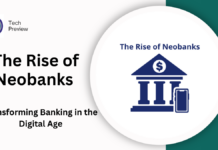In the digital age, online privacy has become a pressing concern. This article explores Ethereum’s contribution to online privacy and the future of online privacy with Ethereum. Online privacy advancements on Ethereum are propelled by tools such as the Ethereum Code bot, which ensure secure automated trading of Ethereum.
Ethereum’s Contribution to Online Privacy
One of the key contributions of Ethereum to online privacy lies in its decentralized nature. Unlike traditional centralized platforms, Ethereum operates on a network of nodes spread across the globe, ensuring that no single entity has complete control over the data. This decentralized structure minimizes the risk of data breaches and unauthorized access, thereby enhancing privacy protection.
Moreover, Ethereum’s smart contracts and decentralized applications (dApps) play a crucial role in facilitating privacy-enhancing functionalities. Smart contracts, which are self-executing agreements with predefined rules, can be utilized to enforce privacy policies and control data sharing. This allows users to specify the terms under which their personal information can be accessed, thereby giving them greater control over their privacy.
Additionally, Ethereum introduces the concept of the Ethereum Virtual Machine (EVM), which enables the execution of code in a secure and isolated environment. This virtual machine supports the development and deployment of privacy-focused applications, allowing users to engage in secure and private transactions without compromising their sensitive information.
Several privacy-focused projects and protocols built on Ethereum further contribute to strengthening online privacy. For instance, the Aztec Protocol leverages zero-knowledge proofs (ZKPs) to enable private transactions on the Ethereum blockchain. ZKPs allow parties to verify the authenticity of information without revealing the actual data, ensuring privacy while maintaining the integrity of the transaction.
Similarly, the Enigma Protocol offers privacy-enhancing features by utilizing secret contracts and secure multi-party computation. These technologies enable decentralized computation of sensitive data without exposing the raw information, protecting user privacy in data-intensive applications.
Furthermore, Ethereum-based solutions like Miximus provide services for coin mixing, which obfuscates the transaction history and makes it difficult to trace the flow of funds. By mixing multiple transactions together, Miximus enhances privacy by dissociating sender and receiver identities, adding an additional layer of anonymity to Ethereum transactions.
The potential applications of Ethereum for privacy protection are vast. Ethereum can be leveraged for identity management systems that enable users to have control over their digital identities, minimizing the risk of identity theft and unauthorized data usage. Decentralized messaging platforms built on Ethereum can offer secure and private communication channels, safeguarding sensitive conversations from prying eyes. Additionally, Ethereum’s support for confidential transactions allows for the transfer of value without revealing transaction details, ensuring financial privacy.
The Future of Online Privacy with Ethereum
Advancements in Ethereum’s privacy capabilities are expected to play a significant role in shaping the future of online privacy. The Ethereum community is actively exploring and implementing various privacy-enhancing techniques and protocols. Researchers and developers are continually working on improving privacy features such as zero-knowledge proofs (ZKPs), ring signatures, and secure multi-party computation (MPC) to further strengthen the privacy aspects of Ethereum.
Collaborations and partnerships between Ethereum and other privacy-focused projects are also driving the future of online privacy. Ethereum serves as a foundation for numerous privacy-centric projects and protocols that aim to enhance privacy on the blockchain. By leveraging the strengths of these collaborations, Ethereum can incorporate cutting-edge privacy technologies and create a robust ecosystem that prioritizes user privacy.
However, it is important to acknowledge that the future of online privacy with Ethereum is not without challenges. As privacy features evolve and become more sophisticated, potential roadblocks and vulnerabilities may arise. It will be crucial for the Ethereum community to address these challenges effectively, ensuring that privacy measures remain resilient and adaptive to emerging threats.
Moreover, the widespread adoption of Ethereum can have profound implications for online privacy. As more individuals and organizations embrace Ethereum for various purposes, the potential for enhanced privacy protection increases. The decentralized nature of Ethereum ensures that users have greater control over their personal information and can engage in transactions with enhanced privacy and security.
Furthermore, the integration of Ethereum into various industries and sectors has the potential to revolutionize online privacy practices. From finance to healthcare, supply chain management to identity verification, Ethereum’s privacy-focused features can be leveraged to protect sensitive data and enable secure interactions. This adoption and utilization of Ethereum can lead to a paradigm shift in how privacy is approached and valued in the digital world.
Conclusion
As we navigate the complexities of the digital landscape, Ethereum emerges as a powerful ally in safeguarding online privacy. With its innovative features and privacy-focused projects, Ethereum offers a promising future where individuals can regain control over their personal information and embrace a more secure online environment.









